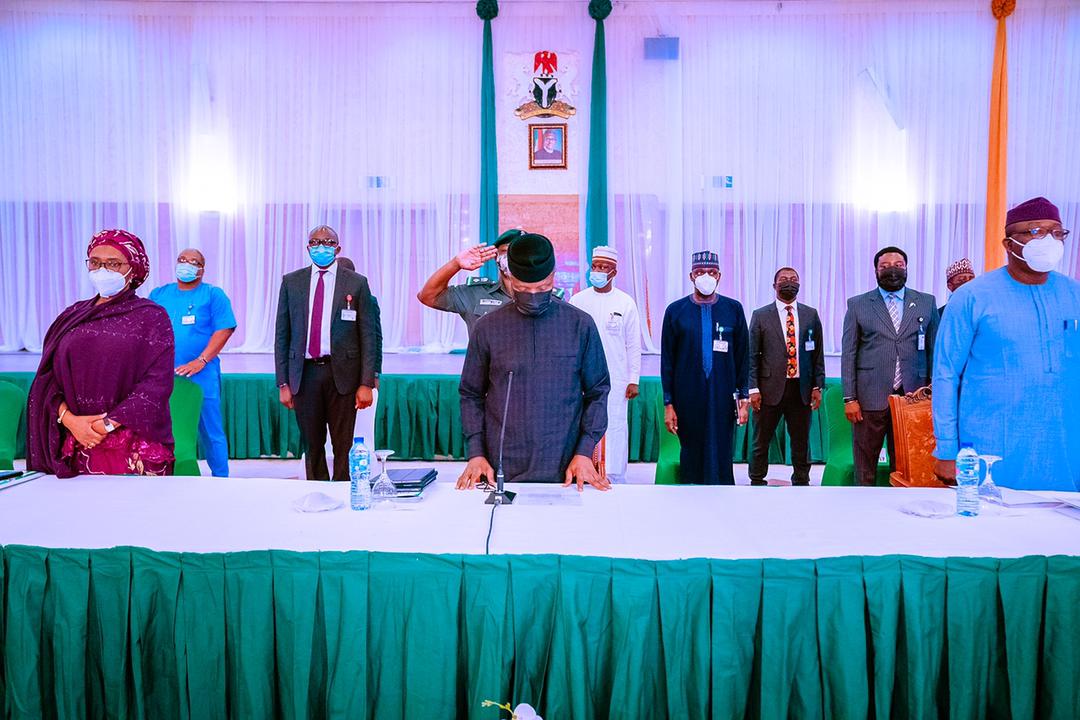A virtual meeting of Nigeria’s National Economic Council, NEC, has begun with Vice President Yemi Osinbajo presiding from his office in the State House.
Thursday’s meeting commenced at 2.00 pm Nigerian time.
Governors of the country’s 36 states are participating in the meeting from their offices.
At the last meeting of the Council, governors were tasked to ensure the continued compliance with non-pharmaceutical measures to contain the spread of the COVID-19 pandemic in their states.
READ ALSO: Insecurity: PDP Charges NASS To Cut Short It’s Vacation,And Summon Buhari Now
Reports on this may be presented at the meeting, especially with the detection of the Delta variance of the virus in the country.
The Council may also consider the distribution of COVID-19 vaccines and their administration to citizens across the states.
It is also expected that the NEC will deliberate on the Petroleum Industry Act, which entered in Nigeria’s statute books on Monday August 16 when President Muhammadu Buhari accented to the bill passed by the National Assembly on July 2, this year.
It was earlier reported that, the country’s macroeconomic environment has continued to show significant growth since exiting recession in 2017, a report presented during the
National Economic Council (NEC) meeting on Thursday revealed.
The meeting, which was the 96th, was presided by Vice President Yemi Osinbajo, in Abuja.
The Jigawa State Governor, Mohammed Abubakar, presented updates on the council’s committee on export promotion.
The report is a sequel to the Zero Oil Plan, envisioned in the Economic Recovery and Growth Plan (ERGP) which is developed by the Nigeria Export Promotion Council (NEPC).
The plan details the non-oil export sector as the last line of defence for the Nigeria economy.
Also, it will help create 500,000 jobs annually, lift 20 million Nigerians out of poverty, and contribute towards sustainable development goals (SDG) on No Poverty.
The governor reported that the committee recorded the following achievements: designed an implementation plan for project implementation, harmonized export development plan submitted by states and identified projects based on the implementation plan and states submissions.
Other achievements include providing processing equipment and conducting capacity building programme on strategic products in the Zero Oil Plan in Kaduna, Benue, Ondo, Edo and Imo states.
The products are palm oil, soya beans and ginger.














